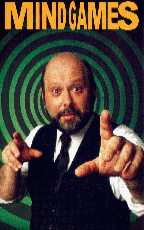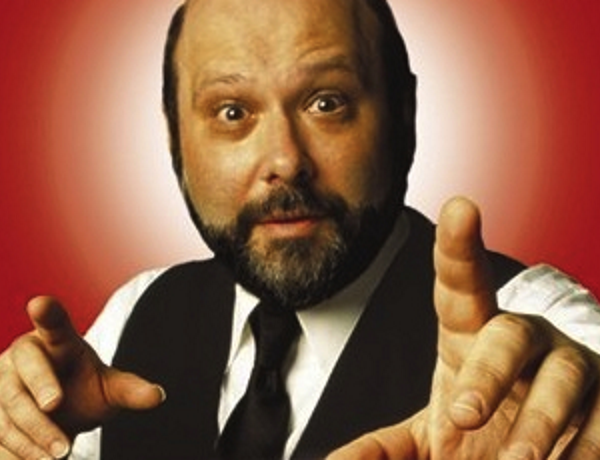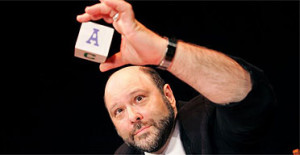Marc's Mind Games
ABOUT MIND GAMES

The philosopher Rene Descartes wrote. "I think, therefore I am." Marc , with his Mind Games, might today change that to read, "I think, therefore I play." Salem lays bare the very nature of thinking itself with breathtaking and audacious games, journeying deeper into the blending of the thought, judgment, emotions and perceptions that we call "the mind."

What am I thinking? For as long as we have recognized the images we create inside ourselves as "thoughts," we have wanted to communicate those thoughts to others. We do this through speech, writing, argument and art. This is public communication, but if we want to keep our thoughts to ourselves, we can; the writer John Donne said "No man is an island," but we have always assumed that our thoughts, at least, are our own. Until now.
Using psychological techniques, visual information, a sharp eye for human nature, a quick wit and 20 years of training, Marc Salem breaks that eternal lock on the mind. By opening that door, he raises fascinating questions that continue to excite philosophers and scientists today: What are our senses? How do we use our senses to make our reality? What if our senses can be fooled? What is the mind?
Working with the mind is often seen as the tortuous work of professors and scientists. Marc Salem plays "games" with the mind, allowing us to see our perceptions and ourselves in a new way, all the while having fun.
With his Mind Games, Marc encourages you to become more open to your mind's potential and to what we're still learning about our perceptions. But remember the old joke: A man says of a politician, "He really has an open mind," and his friend replies, "Yeah, wide open!" Nothing Mare Salem does is supernatural, and this guide was written only to challenge your mind, not to make it up for you. Have an open mind, but an active one: use sharp judgment when introduced to new ideas. Or, as Salem says, "Enjoy your mind and feed it often." This guide, and Mind Games, will offer your mind a hearty meal!
ABOUT NON-VERBAL COMMUNICATION
Is your mind warmed up and ready for some new ideas? Try this one: Think about how much you communicate without words. Imagine a conversation. You use words to communicate, but what else do you use? How does your facial expression show what you mean? Your gestures? Your posture? How close you stand to someone? How about the way you say your words: your intonation, volume? According to A. Barbour's Louder Than Words: Nonverbal Communication, verbal communication comprises only a small part of how we relate to each other. Here's how Barbour breaks down communication:
» 7 % verbal (words)
» 38% vocal (volume, intonation, rhythm, etc.)
» 55% body language (facial expression, posture, gesture, etc.)


